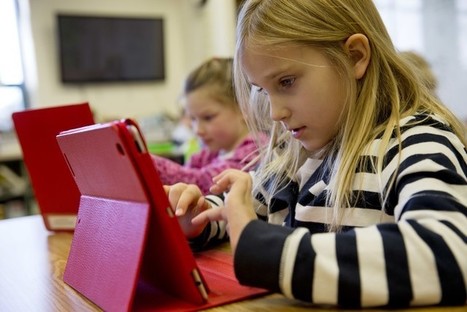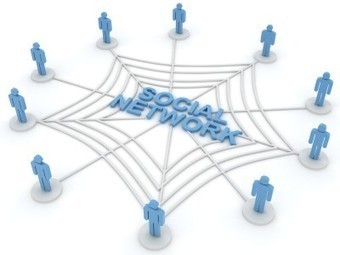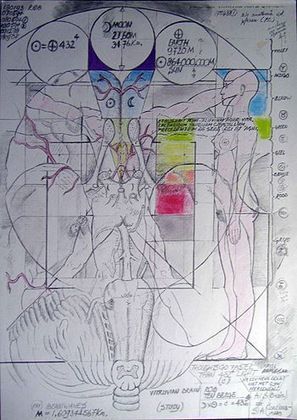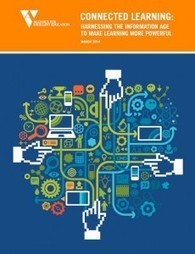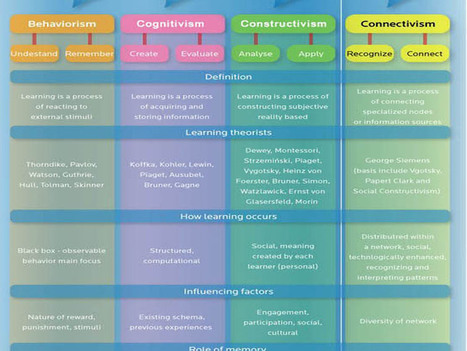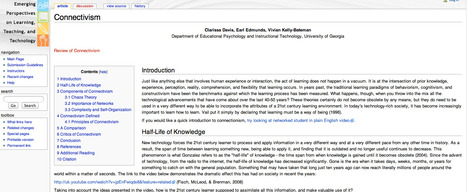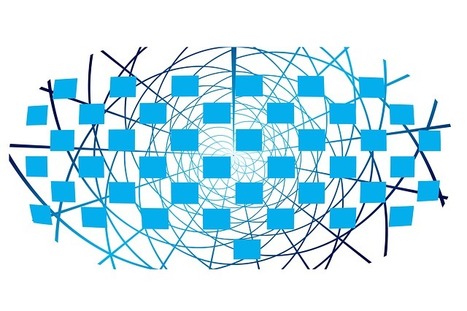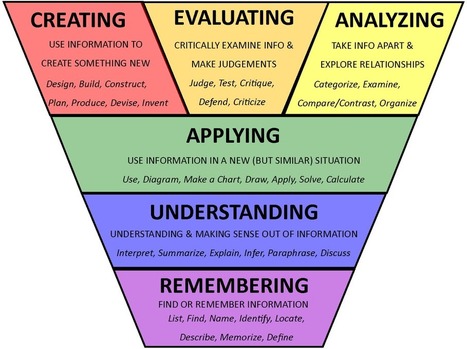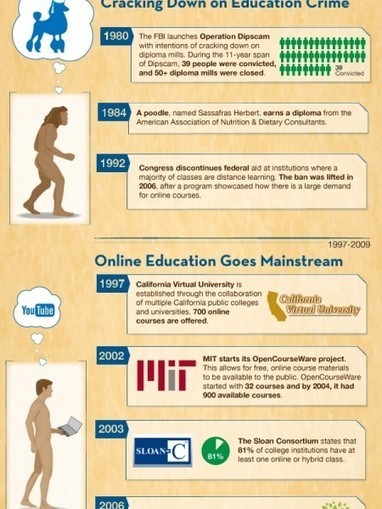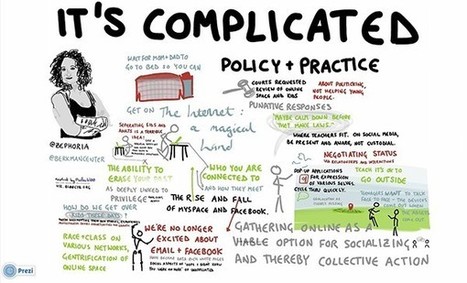You’ve probably heard about the benefits of digital learning: It’s engaging, student-centered, often collaborative, and can increase student achievement.
But here’s the catch:
You and your students won’t reap these benefits if you don’t purposefully plan your use of technology.
Too often, teachers think of technology as something to check off of a list. “Does this lesson use technology? Nope…How can I sprinkle some in?” Using technology merely for the sake of using technology isn’t effective teaching.
Instead, here are five digital learning theories and models that can help you tap into the benefits of technology and enhance student outcomes.
Get Started for FREE
Sign up with Facebook Sign up with X
I don't have a Facebook or a X account
 Your new post is loading... Your new post is loading...
 Your new post is loading... Your new post is loading...

Krystal Robles's curator insight,
September 21, 2017 11:43 AM
The idea of how he said the mind is the informational processor and that the mind is complex.

Gust MEES's curator insight,
November 8, 2017 10:04 AM
This report introduces connected learning, a promising educational approach that uses digital media to engage students’ interests and instill deeper learning skills, such as communication, collaboration, and critical thinking. The report lists four elements constituting connected learning’s emphasis on bridging school, popular culture, home, and the community to create an environment in which students engage in and take responsibility for their learning.
Learn more / En savoir plus / Mehr erfahren:
https://www.scoop.it/t/21st-century-learning-and-teaching/?&tag=Connected+Learning

Rubiel's curator insight,
November 20, 2017 11:27 AM
This repport connects learning and digital media to engage students’ interests and instill deeper learning skills, such as communication, collaboration, and critical thinking. The report lists four elements constituting connected learning’s emphasis on bridging school, popular culture, home, and the community to create an environment in which students engage in and take responsibility for their learning.

Adel M. Alharbi's curator insight,
February 7, 2014 11:21 AM
I like learning through visual concept! 
Dr. Amana Levi's curator insight,
February 8, 2014 3:58 PM
Subscribing to both Bloom and Vygotsky’s social learning theory and currently Webb's Depth of Knowledge allows educators to build upon a student's learning experiences by scaffolding and facilitating questioning techniques to guide students from simple recall to higher levels of creative and critical thinking, thereby allowing them to reflect on their own thinking process. The visual primer is the realization of what "good teachers" and "good leaders" do (i.e. - making meaningful connections and then synthesizing the information).
Dr. Amana Levi |

Nik Peachey's curator insight,
May 22, 2017 1:32 AM
Nice short article on the classroom implications of connectivism. 
Oskar Almazan's curator insight,
May 23, 2017 8:28 AM
Siemens has done a good job laying out the core principles of Connectivism in his 2004 piece, "Connectivism: A Learning Theory for the Digital Age." 
Andrea Mejia Medina's curator insight,
May 23, 2017 12:28 PM
Connectivism: A Learning Theory for the Digital Age George Siemens Behaviorism, cognitivism, and constructivism are the three broad learning theories most often utilized in the creation of instructional environments. These theories, however, were developed in a time when learning was not impacted through technology. Over the last twenty years, technology has reorganized how we live, how we communicate, and how we learn. Learning needs and theories that describe learning principles and processes, should be reflective of underlying social environments. Vaill emphasizes that “learning must be a way of being – an ongoing set of attitudes and actions by individuals and groups that they employ to try to keep abreast of the surprising, novel, messy, obtrusive, recurring events…” (1996, p.42). Learners as little as forty years ago would complete the required schooling and enter a career that would often last a lifetime. Information development was slow. The life of knowledge was measured in decades. Today, these foundational principles have been altered. Knowledge is growing exponentially. In many fields the life of knowledge is now measured in months and years. Gonzalez (2004) describes the challenges of rapidly diminishing knowledge life: “One of the most persuasive factors is the shrinking half-life of knowledge. The “half-life of knowledge” is the time span from when knowledge is gained to when it becomes obsolete. Half of what is known today was not known 10 years ago. The amount of knowledge in the world has doubled in the past 10 years and is doubling every 18 months according to the American Society of Training and Documentation (ASTD). To combat the shrinking half-life of knowledge, organizations have been forced to develop new methods of deploying instruction.” Some significant trends in learning: Many learners will move into a variety of different, possibly unrelated fields over the course of their lifetime. Informal learning is a significant aspect of our learning experience. Formal education no longer comprises the majority of our learning. Learning now occurs in a variety of ways – through communities of practice, personal networks, and through completion of work-related tasks. Learning is a continual process, lasting for a lifetime. Learning and work related activities are no longer separate. In many situations, they are the same. Technology is altering (rewiring) our brains. The tools we use define and shape our thinking. The organization and the individual are both learning organisms. Increased attention to knowledge management highlights the need for a theory that attempts to explain the link between individual and organizational learning. Many of the processes previously handled by learning theories (especially in cognitive information processing) can now be off-loaded to, or supported by, technology. Know-how and know-what is being supplemented with know-where (the understanding of where to find knowledge needed).

Nik Peachey's curator insight,
January 13, 2017 10:09 AM
Always good to read more about connectivism.

Alex Enkerli's curator insight,
November 18, 2014 11:58 AM
Is an infographic the best way to explain #Connectivism?

Maria Richards's curator insight,
August 27, 2014 8:49 AM
I agree completely! But do we as teachers have the knowledge, understanding and confidence to 'teach' our students? OR can they teach us and/or be co-constructors of theirlearning? |




